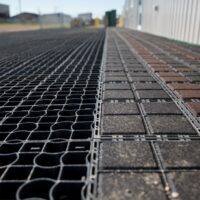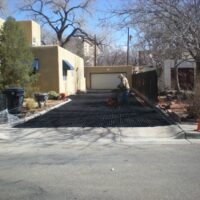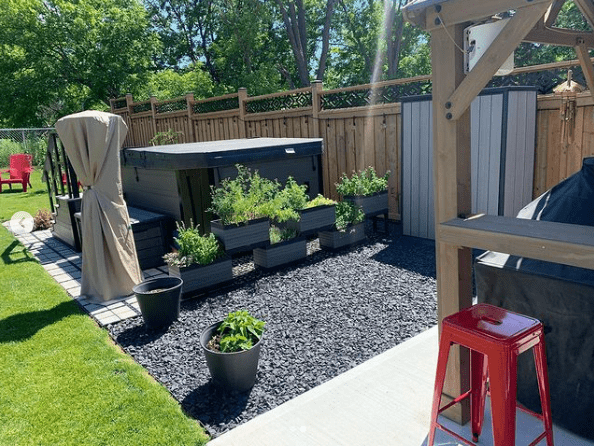
Sustainability in landscaping isn’t just a nice-to-have—it’s becoming an essential part of resilient urban and suburban planning. As communities face increasing challenges from stormwater runoff, extreme temperatures, and pollution, traditional landscaping methods are proving insufficient.
The solution? Using permeable materials in outdoor spaces.
In recent years, organizations like GreenUP have promoted the importance of incorporating permeable materials in our outdoor spaces as a key approach to creating greener, smarter landscapes that benefit both people and the environment.
GreenUP’s advocacy and on-the-ground work have helped increase awareness of how simple design choices can have a significant impact.
In this blog, we’ll explore the issues caused by impermeable surfaces and how permeable options can help solve these problems. Whether you’re upgrading a backyard or designing a commercial space, you’ll feel confident using eco-friendly materials.
The Problem with Impermeable Surfaces
In many urban and suburban areas, a significant part of outdoor space is paved. Driveways, sidewalks, patios, and parking pads typically use impermeable materials such as concrete and asphalt.
These traditionally paved surfaces:
- Prevent natural water infiltration
- Cause excess runoff during rainstorms
- Transport pollutants like oil, salt, and debris into waterways
- Increase localized flooding
- Absorb and trap heat, contributing to the urban heat island effect
With more intense and frequent weather events, our current systems are under pressure, and impermeable surfaces exacerbate the problem.
Permeable Landscaping Ideas
Rain Gardens
Rain gardens provide an effective and low-maintenance way to manage stormwater where it falls. These shallow, bowl-shaped gardens are strategically placed to capture water from roofs, driveways, and sidewalks.
They’re filled with native plants that are deeply rooted and help absorb and filter runoff, allowing clean water to seep back into the soil instead of overloading storm drains.
Beyond functionality, rain gardens provide ecological benefits. They support biodiversity by offering food and habitat for bees, butterflies, and other pollinators. They also help reduce erosion and promote the growth of native plants, which are often better suited to local conditions and require less maintenance.
Rain gardens can be customized to fit virtually any yard size or aesthetic, making them a flexible option for both residential and commercial properties.
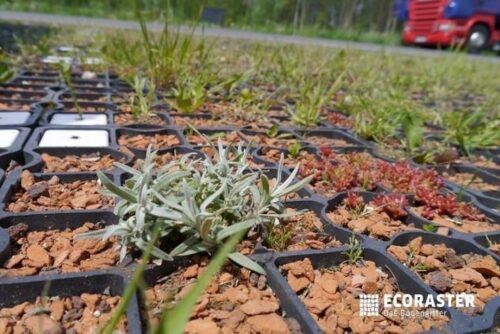
Permeable Pavement
In spaces where solid surfaces are necessary—such as driveways, walkways, and patios—permeable pavement is a forward-thinking alternative to traditional hardscaping.
Permeable pavers are designed to allow water to pass through their surface into a specially formulated base layer, which encourages infiltration and reduces runoff. It helps reduce surface pooling, minimizes erosion, and reduces the amount of stormwater entering municipal systems.
Another fantastic benefit is that it lowers the risk of slippery ice buildup during colder months and helps recharge groundwater supplies.
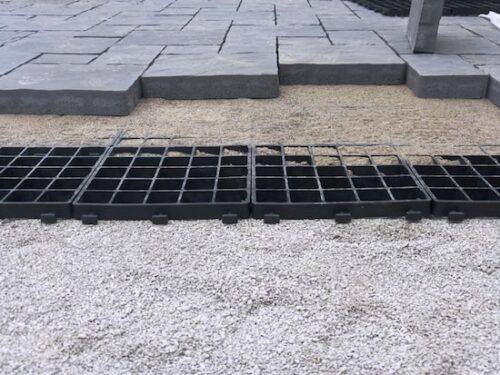
Versatile, High-Quality Permeable Pavers
At Ecoraster, our permeable paving grid system provides a durable, flexible, and eco-friendly solution for managing stormwater. Crafted from 100% recycled plastic, its open-cell structure can be filled with gravel, soil, or even pavers. It can be tailored to your project’s unique requirements while ensuring excellent water permeability.
One of the key benefits of our system is its ability to distribute weight effectively without compacting the subbase. This helps protect the soil structure below and ensures consistent water infiltration, even in high-traffic or heavily loaded areas, such as sloped driveways, parking pads, or municipal boulevards.
Our modular system is lightweight, easy to install, and built to perform in demanding climates. Whether you’re working on a residential build or a large-scale commercial installation, Ecoraster offers a practical way to integrate sustainability and long-term durability into hardscaping projects.
The Importance of a Proper Base
Regardless of which permeable material you choose—Ecoraster or not—the underlying base layer is crucial to the system’s success. You must install a thick layer of clean, crushed, open-graded aggregate to provide optimal drainage.
This base acts as a reservoir, allowing water to be absorbed slowly and evenly into the ground.
Without this foundational layer, water may pool, cause the surface to shift, or reduce the permeable surface’s effectiveness. Proper site preparation, including grading and compaction, is crucial to ensuring the long-term success and optimal performance of any permeable landscape system.
Building a More Sustainable Future, One Surface at a Time
Integrating rain gardens and permeable paving into landscaping projects is not only beneficial for the environment but also a wise investment in long-term property value, climate resilience, and community health.
These methods help reduce flooding, protect water quality, support native biodiversity, and make urban and suburban spaces more livable.
If you’re considering adding sustainable features to your property, know that you don’t have to do it alone. Our trusted distributors and partners play a crucial role in supporting projects like yours. These experts have been instrumental in helping homeowners, business owners, and even municipalities bring their sustainability vision to life, offering insight, resources, and hands-on support every step of the way.
Whether you’re redesigning a driveway, building a rain garden, or seeking product guidance, we encourage you to connect with us so we can provide you with more information or direct you to a trusted distributor. Contact us today—we’re passionate about making sustainable design accessible, functional, and community-driven.





















